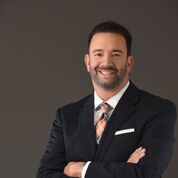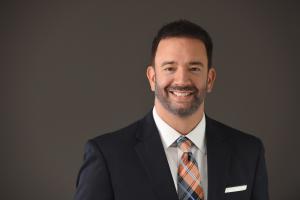
K. Todd Wallace comments on Louisiana Supreme Court case with implications on credit for taxes paid in other states

K. Todd Wallace, Attorney in New Orleans, Louisiana
Todd Wallace, Esq. notes that similarly-situated Louisiana residents should review the implications of the Smith case with a qualified professional
Wallace Meyaski Law Firm (N/A:N/A)
In Smith v. Robinson, the Louisiana Supreme Court decided the constitutionality of 2015 La. Acts No. 109 (hereinafter “Act 109”) and its implication on credit for taxes paid in other states. The plaintiffs were Louisiana residents who had ownership in several pass-through entities that operated in Texas, Arkansas, and Louisiana. The defendant is the Secretary of the Louisiana Department of Revenue.
In 2015, the plaintiffs paid over $20,000 in Texas franchise taxes for Texas-sourced income of their pass-through entities. As Louisiana residents, they paid Louisiana income tax on all of their income, including the Texas-sourced income. Louisiana, however, denied the plaintiffs a credit against their Louisiana income tax for franchise taxes paid to Texas. The Plaintiffs paid the tax under protest and filed suit against the Department to recover the tax paid. (NOTE: A prior version of this article incorrectly stated which party brought this action initially. We received a request for correction, clarifying that the taxpayer paid the tax under protest and filed suit against the Department to recover the tax paid).
At issue is Act 109, which only provides credit for income taxes paid to other states if said state provides “reciprocal credit to that state’s own residents who transact business in Louisiana.” Because Texas does not offer such credit, the plaintiffs’ claim for credit was denied under Act 109. Plaintiffs sued based on the argument that “Act 109 is unconstitutional because the Texas franchise tax imposes a tax on income, and Taxpayers would be entitled to a credit for the amount of Texas franchise taxes paid absent Act 109. Additionally, because Act 109 levels a double tax on interstate income, but not intrastate income, it violates the dormant Commerce Clause.” The State of Louisiana argued that “[the] Texas franchise tax is not a tax on net income because it contains both a net income component and a net capital component, which are not divisible. Relative to the dormant Commerce Clause, the Department denied that Act 109 burdens interstate commerce because it is within the state’s power to regulate state income tax.”
As to whether Texas franchise tax is an income tax, the Court noted that ““[c]lassification of a tax must be determined by its operational effect rather than by the descriptive language used in drafting the enactment.” Examination of the Texas franchise tax does indeed show that it is an income tax. The tax is based on calculation total revenue, which is gross receipts with certain additions minus certain allowances and deductions. Then the taxpayer may elect to use one of four methods to arrive at a taxable margin, which forms the basis for calculation of the franchise tax. Thus, “the manner in which the current Texas franchise tax is calculated, it is still essentially imposed on an income basis.”
Having decided that the franchise tax is income tax, the Court turned to whether Act 109 violates the Dormant Commerce Clause and is thus unconstitutional. Specifically, plaintiffs argued that Act 109 fails to tax only its fair share of the interstate transaction and also discriminates against interstate commerce. The Court agreed with the plaintiffs’ argument that Louisiana’s tax liability “does not reasonably reflect how and where Taxpayers’ income is generated.” The Court also concluded that “Act 109 results in the double taxation of interstate income as compared with the taxation of intrastate income.” Therefore, the court concluded that Act 109 is unconstitutional as it violates the Dormant Commerce Clause of the United States Constitution.
Mr. Wallace notes that similarly-situated Louisiana residents should review the implications of the Louisiana Supreme Court’s decision in the Smith case with a qualified professional to see whether they are getting full credit for income taxes paid to other states. The case is Smith v. Robinson, Case No. 2018-CA-0728.
About K. Todd Wallace
K. Todd Wallace is an attorney and founding partner of the law firm Wallace Meyaski, LLC, in New Orleans, Louisiana. He has nearly 20 years of experience in the legal and business professions with established excellence in trial advocacy, negotiation, strategic and initiative planning, employment law compliance, government relations, mergers and acquisitions, and team building.
Website: https://ktoddwallace.com/
Law Firm Website: http://www.walmey.com/our-attorneys/k-todd-wallace/
Facebook page of the Law Firm: https://www.facebook.com/WallaceMeyaski/
Facebook page of Kenneth Todd Wallace, Attorney at Law:
https://www.facebook.com/kennethtodd.wallace.3
LinkedIn Profile of Kenneth Todd Wallace: https://www.linkedin.com/in/k-todd-wallace-03895358/
Lawyer Profile at: http://lawyers.lawyerlegion.com/louisiana/kenneth-todd-wallace-18001529
Attorney Profile: https://www.lawyers.com/new-orleans/louisiana/kenneth-todd-wallace-604175-a/
Attorney Profile:
Lawyer Profile: http://www.lawyerdb.org/LawFirm/Wallace-Meyaski-LLC-New-Orleans/
http://www.lawyerdb.org/LawFirm/Wallace-Meyaski-LLC-New-Orleans-Lawyer/
Twitter: www.twitter.com - Todd Wallace@tarheeltodd94
News: https://hype.news/k-todd-wallace-attorney-in-new-orleans-louisiana-usa/
News: https://attorneygazette.com/kenneth-todd-wallace
Blog at: https://ktoddwallaceblog.blogspot.com/
K. Todd Wallace, Attorney at Law
Wallace Meyaski Law Firm
+1 504-644-2011
email us here
Visit us on social media:
Facebook
LinkedIn
NewsTalk 96.5 KPEL - Gov Edwards On The Louisiana Budget, Proposed New Taxes
EIN Presswire does not exercise editorial control over third-party content provided, uploaded, published, or distributed by users of EIN Presswire. We are a distributor, not a publisher, of 3rd party content. Such content may contain the views, opinions, statements, offers, and other material of the respective users, suppliers, participants, or authors.





